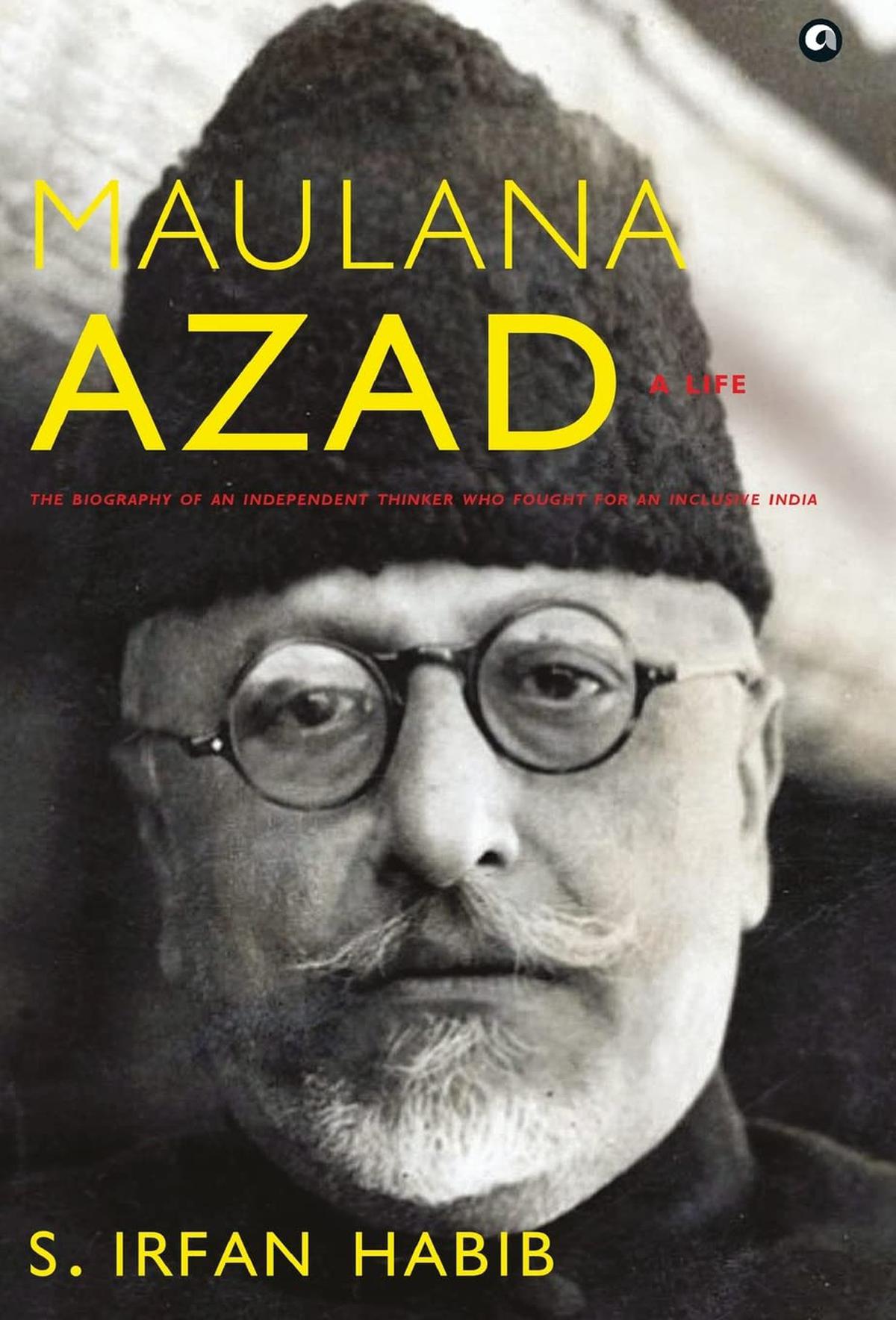Has India forgotten Maulana Abul Kalam Azad, the country’s first education minister and a champion of Hindu-Muslim unity?
Maulana Abul Kalam Azad (right) with Mahatma Gandhi in Bombay, 1945.
| Photo Credit: Getty Images
I am an orphan in my own motherland…
— Maulana Abul Kalam Azad
These words of Maulana Azad — the first education minister of independent India — spoken from Delhi’s Jama Masjid on October 23, 1947 came to mind last week when the plenary session of the Indian National Congress began in Raipur against the backdrop of placards and posters of some of the tallest leaders of the party.
Hoardings and front-page advertisements in many dailies had the photographs of Mahatma Gandhi, Jawaharlal Nehru, Subhash Chandra Bose, B.R. Ambedkar, Sardar Vallabhbhai Patel, Lal Bahadur Shastri and Sarojini Naidu besides those of post-Independence leaders from the Nehru-Gandhi family and former Prime Minister P.V. Narasimha Rao. Azad, former Congress party president and the man who stood like a rock against Mohammed Ali Jinnah, was missing from the posters.
Social media took note, and was soon abuzz with talk about the activist and scholar who gave the country its first IIT, and helped set up the Sangeet Natak Akademi, Lalit Kala Akademi, Sahitya Akademi and the University Grants Commission, among others. Congress general secretary Jairam Ramesh tried to cover up. He tweeted: “Today, an ad released by INC did not carry a photograph of Maulana Azad. It was an inexcusable slip-up. Responsibility for it is being fixed and action will be taken”.
Maulana Azad National Fellowship withdrawn
Once lampooned by the Muslim League, now dumped by the Congress and unwanted by the BJP, Azad is a forgotten man today. In December last year, the BJP-led Union government had scrapped the Maulana Azad National Fellowship for needy students citing “overlaps with various other fellowship schemes”.

Students demanding the restoration of the Maulana Azad National Fellowship being detained by the police in New Delhi, December 12 2022.
| Photo Credit:
Shiv Kumar Pushpakar
Launched in 2009, the scheme provided financial assistance for five years to students from six notified minority communities — Buddhist, Christian, Jain, Muslim, Parsi and Sikh — to pursue M.Phil and Ph.D. The affected students protested but that did not change anything. Azad’s anniversary on February 22 too went by almost unnoticed.
According to historian S. Irfan Habib, what’s happened with Azad is indicative of the times. “It fits in well with the current dispensation’s policy of erasing the history of any Muslim influence. They are changing the names of cities and roads. The denial of Maulana is a part of that,” he says.

Habib, whose biography of Azad titled Maulana Azad: A Life released just last month, was among the first to react to the Congress slip-up in Raipur. “I removed my tweet after Jairam Ramesh issued a public apology. I believe posters for such events are made with planning. If it was planned, why so,” he asks. “The reason I did this biography was to bring him back in national discourse as there has been no book on him for several years.”
Azad’s plea to Indian Muslims
At a time when politicians have no qualms in telling Muslims to go to Pakistan “if they want to eat beef” or “if they cannot sing ‘Vande Mataram’”, it is perhaps pertinent to recall Azad’s anguished words to his countrymen after Partition, which he was dead against. He said, “Where are you going and why? Raise your eyes. The minarets of Jama Masjid want to ask you a question. Where have you lost the glorious pages from your chronicles? Was it only yesterday that on the banks of the Jamuna, your caravans performed wazu? Today, you are afraid of living here. Remember, Delhi has been nurtured with your blood. Brothers, create a basic change in yourselves. Today, your fear is misplaced as your jubilation was yesterday… I do not ask you to seek certificates from the new echelons of power… Come, today let us pledge that this country is ours, we belong to it and any fundamental decisions about its destiny will remain incomplete without our consent.”
Many did not heed his advice then. And today, political parties of modern India have shunned him altogether.
ziya.salam@thehindu.co.in


